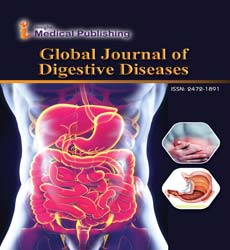Abstract
Prevalence and outcome of post ERCP complications
Background and Aim: The role of endoscopic retrograde cholangiopancreatography (ERCP) has evolved from a diagnostic to a mainly therapeutic intervention. Early recognition and appropriate management of potential adverse events are critical to reducing morbidity and mortality associated with the procedure. There is no data on post ERCP complications from India. Aim of this study is to assess prevalence and outcome of post ERCP complications.
Methods: This is a retrospective analytical study of prospectively collected data. All patients with post ERCP complications from January 2012 to December 2018 at G B Pant Hospital were included in this study. Prevalence and outcome (mortality or recovery) of complications were determined. Factors influencing outcome for common complications were studied using multivariate analysis.
Results: A total of 17163 ERCPs were done during study period. Overall prevalence of complications was 549 (3.2%) while overall mortality was 69 (0.4%). Mean age of patients was 46±15 years and 430 (78%) were female. Most common complication was perforation (n=275, 1.6%), followed by post ERCP pancreatitis (PEP) (n=177, 1%), bleed (n=60, 0.35%), cardiovascular events (n=23, 0.13%), infection (n=14, 0.08%) and basket impaction (n=5, 0.03%). Most common perforation was type II (n=234, 85%). Early (<12 hours) surgery significantly decrease mortality in patients who underwent surgery for perforation (p<0.005). PD cannulation (75%) was major contributing factor for PEP.
Conclusion: ERCP is safe procedure with acceptable rates of complications. Prevalence of complications and outcome in Indian setup are comparable to published data.
Author(s):
Manish Kumar
Abstract | PDF
Share this

Google scholar citation report
Citations : 112
Global Journal of Digestive Diseases received 112 citations as per google scholar report
Abstracted/Indexed in
- Google Scholar
- Sherpa Romeo
- WorldCat
- Publons
- Secret Search Engine Labs
Open Access Journals
- Aquaculture & Veterinary Science
- Chemistry & Chemical Sciences
- Clinical Sciences
- Engineering
- General Science
- Genetics & Molecular Biology
- Health Care & Nursing
- Immunology & Microbiology
- Materials Science
- Mathematics & Physics
- Medical Sciences
- Neurology & Psychiatry
- Oncology & Cancer Science
- Pharmaceutical Sciences
